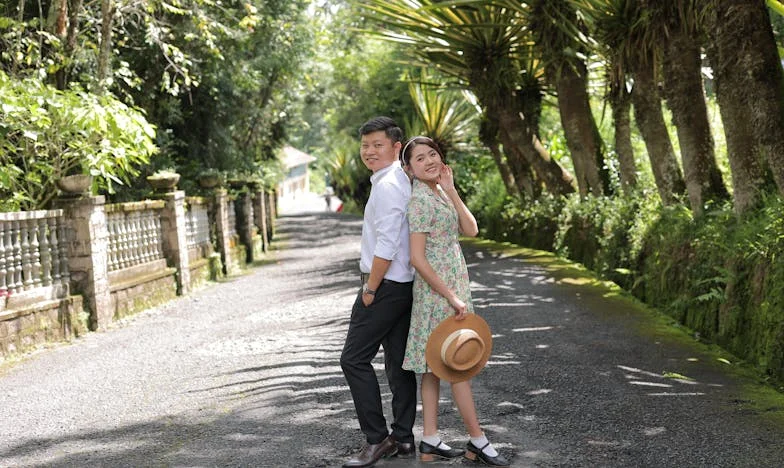When My Own Son Hired Me: A Mother’s Reckoning with Love and Dignity
“Mom, would you… come by and help out with the house? I mean, we could pay you.”
The words hung in the air like heavy smoke, filling the kitchen with something I didn’t have a name for. I stood in my faded slippers, coffee mug trembling in my hand, and tried to process what my son had just asked. Matthew—my little boy, now a man with a wife and a new mortgage—looked everywhere but at my face. Chiara, his wife, stood behind him, biting her lip and staring at the tile. I could hear the distant rush of cars outside, the hum of the refrigerator, the thudding of my own heart.
“You want to pay me… to clean your house?” I finally managed, my voice cracking in places I didn’t know existed.
“It’s just—we’re both working late, and we trust you, Mom. We’d feel better if it was you, not some stranger,” Matthew said, pushing his fingers through his hair the way he did as a boy when he was caught sneaking cookies. “It’s just a job. We can’t ask you for free.”
I stared at the white kitchen walls, remembering the years I scrubbed floors, folded his laundry, wiped his tears. I remembered staying up all night when he was sick, making his favorite pancakes after a tough test. And now, he was offering me twenty dollars an hour to do what I had done for him all his life—this time, as a hired hand.
That night, I lay awake beside my sleeping husband, Tom. The ceiling fan spun shadows over us. A thousand memories ran through my head: Matthew’s first steps, his graduation, the way he called out for me after nightmares. How had we come to this? How had I become someone he could pay for her love?
I tried to talk to Tom about it, but he shrugged. “It’s just the way things are, Linda. Kids today—they think money solves everything. Maybe they’re trying to help.”
But it didn’t feel like help. It felt like a tear in the fabric of our family—an invisible chasm opening under my feet.
A week later, I stood outside their house, clutching the house key in one hand and a crumpled grocery list in the other. I’d said yes—I didn’t know why. Maybe I wanted to prove I was still needed. Maybe I wanted to feel close to them, even if it was through a mop and bucket.
Inside, the house was a mess—laundry overflowing, dishes stacked in the sink, toys scattered across the living room. I rolled up my sleeves and got to work, scrubbing and wiping, sorting and folding. I found myself humming the lullabies I used to sing to Matthew. But every sweep of the broom felt like a betrayal—of myself, of the mother I’d been.
When Matthew came home, he pressed a crisp envelope into my hand. “Thank you, Mom. Really.”
I stared at the money, my lips trembling. “I’m not your maid, Matthew. I’m your mother.”
He looked at me, wounded. “I know, Mom. But we want to help. We know you and Dad could use the extra money. Chiara’s parents… they do things differently. They pay each other for favors. It’s just—how things work now.”
I shook my head, tears stinging my eyes. “Isn’t love enough? Isn’t family enough?”
The weeks blurred together. Every time I cleaned their house, bitterness built inside me. I started snapping at Tom, avoiding friends. At night, I’d stare at the envelope of bills in my nightstand and wonder if this was all I’d amounted to. A service. An invoice. Was this what raising a child meant in America now? You give everything, and one day, your kindness comes with a price tag.
One Sunday, at dinner, I tried to bridge the gap. The table was set, the roast chicken steaming. I looked at Matthew and Chiara, their faces tense.
“Do you remember how you used to help me in the kitchen, Matthew?” I asked. “You’d steal carrots, make a mess. But you’d always wash your hands, help set the table.”
He smiled, the lines in his face softening. “I remember, Mom.”
“Why do you think we did that?” I pressed. “It wasn’t about money. It was about being together. About caring.”
Chiara reached for Matthew’s hand. “We’re sorry, Linda. We didn’t mean to hurt you. It’s just—we’re overwhelmed. We thought maybe paying would make it… fair. We didn’t want to take advantage.”
I nodded, swallowing hard. “Family isn’t about keeping score. It’s about showing up for each other, even when it’s inconvenient. That’s how I was raised. That’s what I tried to teach you.”
Matthew’s eyes glistened. “We lost sight of that, Mom. I’m sorry.”
We sat in silence, the weight of years pressing down on us. Finally, Matthew spoke. “Can we start over? Maybe you come over, but not as help. Just… as Mom.”
I smiled, the ache in my chest easing. “I’d like that.”
Later that night, alone in my kitchen, I held the envelope of money one last time. I thought about pride, about love, about what it means to belong. I put the envelope away and called Matthew, just to say goodnight.
Do we really need to put a price on love? Or have we forgotten what family is supposed to be?
